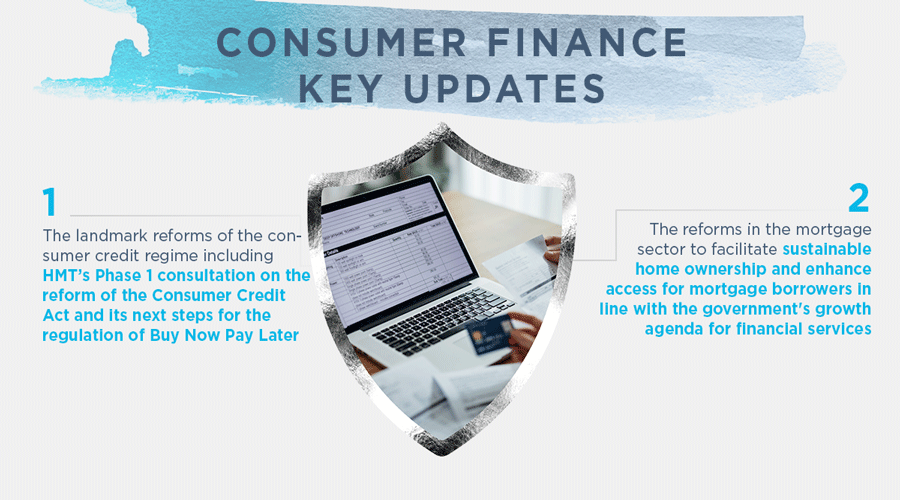Facilitating sustainable home ownership and enhancing access and flexibility for mortgage borrowers have been at the top of the government's growth agenda for financial services. We have seen several announcements from the Financial Conduct Authority (FCA) to take forward the government's agenda.
On 25 June 2025, the FCA published a discussion paper (DP25/2) on the future of the mortgage market. This follows a recent speech delivered by Emad Aladhal, FCA Director of Retail Banking, in which the FCA confirmed that it is looking to open a discussion in June 2025 on the future of the mortgage market and the regulation of conduct in that market. Mr Aladhal called on the industry to consider more ways to ‘innovate’, ‘explore new ventures’, review their practices to ‘meet the long-term needs’ of customers, and ‘generate sustainable growth’.
In DP25/2 the FCA is looking to explore various reforms to support sustainable home ownership and economic growth, including changes to the mortgage market's collective appetite for risk, using innovation for affordability assessments and enabling customers to make the right choices through changes to disclosure requirements.
In this article we share our insights on which areas of the UK mortgage regime are vulnerable to future changes and the factors firms may want to consider in assessing the impact of these changes to their mortgage business and in their engagement with the regulator to shape some of these reforms.
Revision to responsible lending rules
Following the 2008 financial crisis, regulatory and industry reforms have raised standards around mortgage lending. While this created a more resilient market, a more cautious approach may also have unduly restricted consumer access to the market. The FCA is therefore exploring possible changes to its mortgage lending rules and the collective appetite for lending, to support home ownership by those that can afford a mortgage but are currently underserved due to their circumstances, including first-time buyers, the self-employed, and those with variable incomes.
We could therefore see possible changes in the following areas:
- The Interest Rate Stress Test: FCA has been looking at refining the current stress test framework and recently published a call for evidence. As part of any changes to the current stress test model the FCA could set a universal stress rate, updated periodically. While this may offer consistency there is a risk that this may penalise low-risk borrowers. We may also see changes made to the current 5-Year threshold for fixed rates. Options could include removing the threshold, extending it (e.g. to 10 years), or applying stress tests to all mortgages. This could potentially increase consumer protection but also restrict lending requiring firms to stress at higher rates than they do today. Other areas of potential changes include amending the 1% minimum stress margin or replacing it with a fixed margin above the current product rate.
- Alternative methods of affordability assessment: The FCA is looking at a rent-based affordability assessment which could require firms to assess affordability based solely on the customer’s past rental payments. While simpler, firms should be live to the fact that a purely rent-based test could place more risk on the borrower than the current assessment that looks more widely at a customer’s financial position, ability to pay and the impact of likely future interest rate increases on affordability.
- Interest‑only mortgages: The FCA is exploring whether its rules could better support interest-only and part-and-part mortgages to help first-time buyers meet affordability criteria by reducing monthly payments. The options the FCA is looking at include- relaxing the requirement for a repayment strategy in certain cases including allowing short-term flexibility for borrowers to switch between repayment and interest-only during the mortgage term without needing a repayment vehicle. Firms may be required to develop product designs to facilitate this option. The FCA may also revise its repayment strategy expectations where the sale of the property could be accepted as a credible repayment strategy if it’s highly likely to repay the mortgage in full, even if it doesn’t leave surplus funds for future housing needs.
- Lastly, the FCA may also look to streamline its responsible lending rules to help victims of joint mortgage abuse, enable homeowners to access more finance through bridging loans and expand lending criteria to accommodate mortgages for properties that may have been affected by climate-related events or have become uninsurable.
Changes to later life lending
There is a concern that for many, the costs of retirement are unlikely to be met by savings alone, and there could be greater demand for homeowners to access the equity in their homes. The 2024 Financial Lives Survey found that 19% of mortgage borrowers aged 55 or over either did not think they would be able to afford their mortgage in retirement, or weren’t sure. There is around £9tn in UK housing stock, and some of this could support a more comfortable retirement.
The FCA is exploring whether their rules need to change to make later life lending more accessible for these borrowers with the right options and support available to them. Firms are encouraged to innovate and launch new offerings that could be targeted at either older or long-term borrowers, and the FCA is looking at how their rules can support that. As part of this, the FCA may also introduce new requirements for firms to facilitate access to more effective, holistic advice for older borrowers to support their needs and address the current lack of awareness of options available to them.
Changes to customer advice and disclosure requirements
Standards for mortgage advice and sales
As part of this reform new rules may emerge which will support firms to provide innovative advice to customers. There are concerns that the current rules are hindering firms to innovate with AI-assisted advice. The FCA is seeking to move from advice-based mortgage sales and is already consulting on removing the interaction trigger at Mortgage Conduct of Business (MCOB) 4.8A.7R (3), and associated rules and Guidance, which could enable more ‘non-advised’ (execution-only) sales, as seen before the Mortgage Market Review 2014. The FCA is further exploring whether the current suitability standards, including the cheapest option rule under MCOB, are in the right place and fit for purpose.
The FCA is considering requiring enhanced advice for certain mortgage products or borrower types where risks are higher. This advice could include more holistic financial guidance and possibly require higher qualification standards for advisers.
Possible changes to the disclosure regime
The FCA is looking to adopt a more outcomes-based disclosure framework underpinned by the Consumer Duty instead of continuing with the existing disclosure regime, which is inflexible and prescriptive and derive from the EU Mortgage Credit Directive (MCD). Firms should anticipate a shift from a standardised approach to disclosure to a modern framework where the onus will be on them to ensure that consumers are empowered to understand products on offer, to help them make informed decisions on what is appropriate for them. Firms may also need to build in new technologies, including AI-supported solutions, allowing them to deliver better outcomes for consumers through more personalised and tailored disclosures.
Next steps
Firms should monitor the progress of the FCA’s proposals in this space and assess the impact of the relevant changes on their mortgage lending infrastructure. A number of these proposed reforms will affect the firms’ current systems and processes including their training and competency, advisory and disclosure frameworks. The proposals in relation to affordability assessment, interest only mortgages and later life lending above are likely to require firms to launch new offerings and product designs, adding to the cost of investment that they have made over the years in designing their systems around the FCA’s current rules.
The FCA is asking stakeholders to engage and send in their comments by 19 September 2025. It will consider the feedback and will consult in the usual way if it decides that there is a case for making changes to its rules and guidance. Firms must seize the opportunity to respond to the FCA’s discussion and help shape some of these reforms at an early stage and before the formal consultation on the rule changes.






